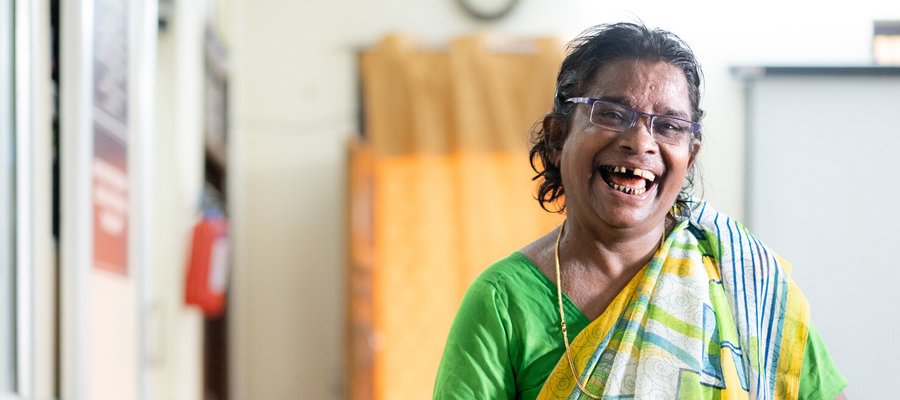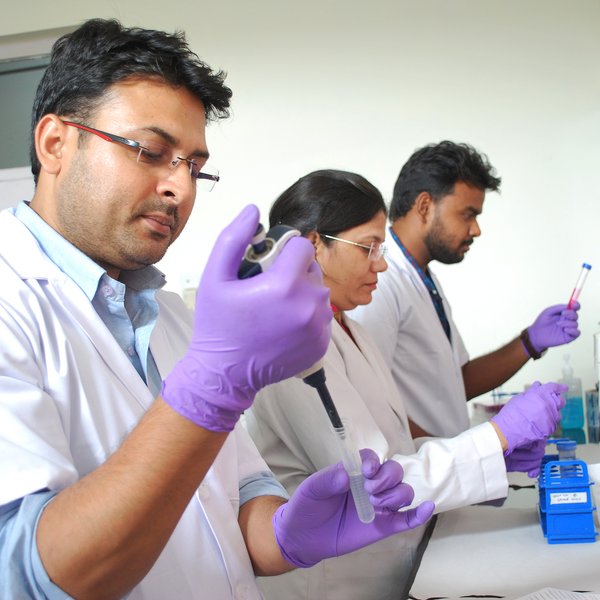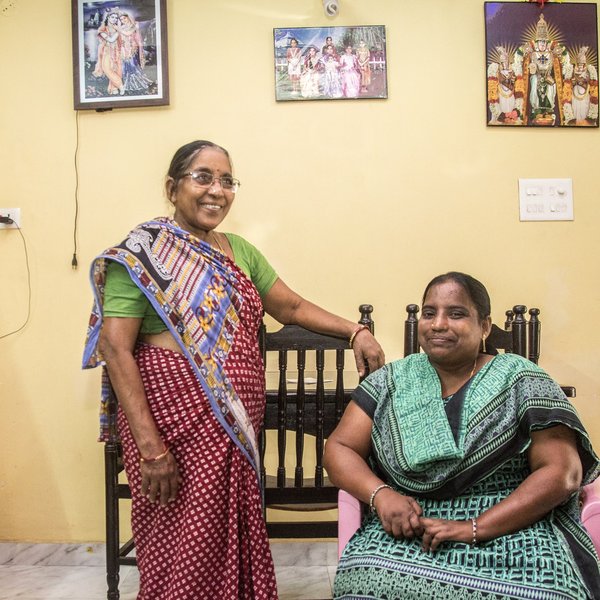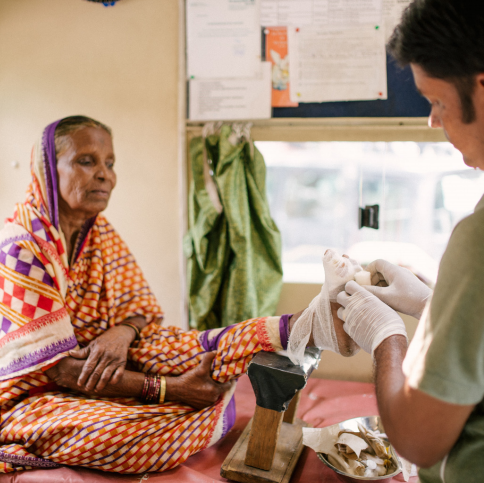India
India

An Irishman named Wellesley Bailey founded the Leprosy Mission in 1874 in Ambala, India. Since then, TLM has been working across India to support persons who have experienced leprosy, other neglected tropical diseases (NTDs), other disabilities, and are from marginalised communities.
Healthcare
The Leprosy Mission Trust India (TLMTI) provides specialised leprosy care and general healthcare services through 14 hospitals and two clinics across 10 states: Andhra Pradesh, Bihar, Chhattisgarh, Delhi, Karnataka, Maharashtra, Tamil Nadu, Uttarakhand, Uttar Pradesh, and West Bengal.
The hospitals address all aspects of leprosy, including managing the disease, disability and mental health issues. They manage leprosy complications and prevent and minimise scope for further disabilities. Reconstructive surgeries are performed to restore physical appearance of the limbs and improve functional ability. Leprosy is a major cause of disability and the hospitals address the issue of disability through institution-based and community-based disability management. Some of the hospitals are centres of excellence for allied medical specialities, such as dermatology, ophthalmology, general medicine, general surgery, and obstetrics & gynaecology.
TLMTI also provides holistic care for physical, mental and spiritual well-being of elderly persons in its five Snehalayas (a house of love) spread across three states.
Research and Training
TLMTI’s multi-disciplinary research work focuses on ending disease, disability and discrimination. TLMTI has innovated novel methods for early diagnosis of leprosy and producing customised footwear to reduce incidence of ulcer.
For decades, TLMTI has been providing structured training to build and retain leprosy expertise for healthcare professionals such as specialist doctors, medical officers, physiotherapists, occupational therapists, and para-medical workers in suspecting, diagnosing and managing leprosy and its complications.
Community Empowerment
TLMTI works with the communities to facilitate better access to healthcare, education, livelihoods, and government schemes. Besides generating livelihood by skilling people who experienced leprosy and other disabilities, TLMTI’s community empowerment projects also capacitate local people to become change agents in their communities. They develop leprosy champions, who have overcome the disease and now spread awareness about it so that myths around it are busted and stigma is ended.
TLMTI also provides educational scholarships to students who have a background of leprosy. Its adult literacy programme helps people who experienced leprosy and other disabilities gain functional literacy.
Sustainable Livelihood
TLMTI has six vocational training centres (VTCs) spread across six states: Andhra Pradesh, Chhattisgarh, Maharashtra, Tamil Nadu, Uttar Pradesh and West Bengal.
These VTCs provide institution-based vocational training to boys and girls who experienced leprosy and other disabilities. The government-recognised and job-oriented trades taught in the VTCs—diesel mechanics, printing, computers, two/three-wheeler mechanics, and electronics, etc.—prepare them for gainful employment.
TLMTI also provides job placement support to students and advocates for creating inclusive and enabling work environments. Self-help and other groups help households earn additional income through livelihood opportunities and have an improved quality of life.
Advocacy and Communications
TLMTI works with ministries and government representatives, disabled people’s organisations, civil society organisations, think tanks, international organisations and academia to identify policy challenges faced by people who have experienced leprosy and other disabilities.
TLMTI designs IEC materials, including audio-visual and printed collaterals, for sensitising different stakeholders on issues pertaining to leprosy and other NTDs. It also helps partner organisations and government entities in designing training material on various self-care methods for health workers, and also planning, implementing and disseminating impact of various interventions at the Centre and state level.



